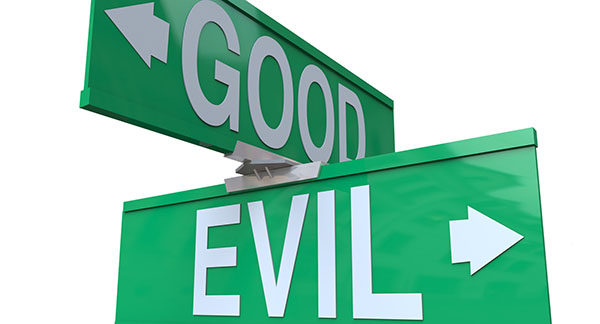We moderns look askance at such a dialectic. However, my experience has shown me life is exactly this, every day, ever moment, every instant. I wish I had more soothing news, a way out, a loophole. Rather, there is no nuance. No dissembling. Straight up. It has. It is. Woe to them that accept it not. Woe to them. Evil is NOT an equal to good. It is the absence of good. Good is a reality. Evil is a vacuum of reality. Hence, evil can never truly overcome good. It can tempt towards despair, but it has no power other than what we acquiesce to. Good is. Evil is not. God allows evil to exist as part of His passive will, that which He allows, only as a means of bringing good out of evil because He is God, and He alone can do this, and does and will.
“I have fought the good fight. I have finished the race. I have kept the Faith!!” -2 Tim 4:7. This scripture was engraved on the base of the youthful statue of the patron of my young adult parish, St Paul’s. My mother asked her catechetical students, see where I get it? She asked them not to say, “Hello, Mrs. McCormick!” But, rather, “Keep the Faith!” “If my children lose their Faith, I have failed as a mother!” -MDM
Rm 12:21
““He who endures to the end will be saved” (-Mt 10:22)
It is good to start something, but it is better to finish it (see Eccl 7:8). To endure to the end, our ultimate end, means to die well, to die with our loving trust in God. Blessed are those who die in the Lord, because they will be saved, because they will live in perfect happiness with God in the communion of saints. The very essence of a good life is a good death, because a good death leads to eternal life.
This doesn’t mean that our actions now, before our deaths, are meaningless or unimportant. In fact, the only way to endure to the end is to belong firmly to God in grace, a belonging established throughout our lives.
In a way, all the many actions throughout our lives together make up only one choice. We are offered the possibility in grace of belonging to God forever, of knowing Him, loving Him, and finding perfect fulfillment in Him. We can choose to accept this possibility, to love God. Or, we can choose to reject God, to hate Him. We make this choice through the course of our whole life, a choice which is completed and finalized in our choice at death, a choice which has consequences beyond our death.
The angels were offered the same choice in the moment of their creation. Some chose God, and some chose their own pride. But because they are spiritual, and not bodily, because they have a higher perfection of being than us, they made this choice in a single act and in a single moment.
We are bodily persons, not angelic persons. We make our choice not in a single act, but through the whole course of our lives. That choice, to either accept His gift of grace and to love Him, or to reject Him and hate Him, is cemented at our death. Before that ultimate moment there is always the possibility of conversion, and likewise the possibility of falling away. The direction in which we turn is shaped by each and every one of our actions.
Our lives are, in a way, an anticipation and preparation for our deaths, and for what lies beyond our deaths.
But we are not alone in this preparation. God gives us His grace, purchased by the blood of Christ, and communicated to us in the indwelling of the Holy Spirit. The saints and angels stand by our side, interceding. Mary, our mother, is our foremost intercessor, as we petition her in the Hail Mary to pray for us sinners, now and at the hour of our death.
As we strive to endure to the end, we can turn again and again to Mary. Let us beg her to pray for us now, that we may love God in each of our actions, and at the hour of our death, that we may endure in God’s love until our end, and beyond our end.”
Love,
Matthew


